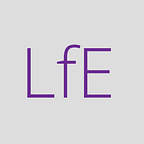PGT: Planning and Scoping a Dissertation and Literature Review
R23–1110
Materials: Slides and Word doc with discussion prompts for final activity. May want to create a Jamboard for use with larger groups.
Group: MA in Languages and Cultures PGTs (small group: 8 students)
Delivery: In person, on campus
Time allocated: 1 hour 50 minutes (with 5-minute break in middle)
Session created to support MA students (particularly students who studied their undergraduate degree outside the UK) with a Research Training course unit, where they are required to research and write their own research questions, dissertation proposal, research timeline and 2,000-word literature review as well as their dissertation.
The session focuses on three core areas: planning a research project and managing your time; a brief overview of where to start with a literature review; and devising research aims and questions. As the session was originally designed for a group of 8 students, activities focus on group/partner discussion and feedback to the larger group.
More detailed notes and the key ideas to put across are written in the Notes underneath each slide.
Section 1: Planning your research project
This section is designed to get students thinking and talking about the many elements involved in planning and writing a dissertation over the course of a year, and to reflect on the importance of time management in completing their research on time and while managing other priorities. Students have the opportunity to reflect on their personal working preferences when completing longer-term projects, and to share tools that they find effective when managing their time. A link to a Gantt chart is provided that includes some very useful subdivisions for planning such a research project.
Choosing your research topic: The key point here is to note that topic finding is iterative, and that students will likely need to refine their topic as they continue to research and discover what has or has not been examined in their field.
Searching for literature: This section is not designed to be a detailed guide to searching, but to introduce Subject Guides, to encourage students to use a range of search tools, and to prompt students to think critically about the use of Google Scholar.
[5-minute break here, but this can be moved to where the trainer considers appropriate]
Section 2: How to do a literature review
The aim here is to ask students to reflect on the purpose of a literature review, and how it should develop an argument instead of being descriptive. A recap is provided of what is meant by argumentative writing in academic terms, as well as what critical analysis entails in this context. The It says/I say/And so model is introduced to give students a framework to use to help to find a balance of evidence and analysis in their literature review (and academic writing in general).
Section 3: Research aims and questions
This section looks at the function of research questions and how to develop them, with a worked example from the field of social sciences. It breaks down the differences between research aims, objectives, and questions. Lastly, the section describes the aim of a research proposal, and how it differs from a literature review, with a short discussion activity where students consider the kind of academic language that might be found in each type of text.
